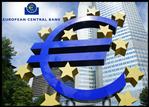
Eurozone financial stability faces increased risks related to possible global asset market corrections, partly due to political uncertainty and expected U.S. policy changes, the European Central Bank warned.
"Higher political uncertainty may lead to more domestically focused, growth-hindering policy agendas," the bank said in its biannual Financial Stability Review report, released Thursday.
"This, in turn, could delay much needed fiscal and structural reforms and could in a worst-case scenario reignite pressures on more vulnerable sovereigns."
In the real economy, high political uncertainty could trigger a re-emergence of concerns about debt sustainability despite relatively benign financial market conditions, the bank warned.
"Political uncertainty continued to rise not only at the national level given busy electoral calendars in 2017 in major euro area countries, but also at the EU level in the aftermath of the UK referendum," the ECB said.
"In particular, less reform-oriented and more domestically focused policy agendas may lead to the delay of much needed fiscal and structural reforms and may reignite pressures on more vulnerable sovereigns."
The ECB also said that risks of further asset price corrections remain high and may be amplified by high correlations between asset classes.
The euro area financial system has been resilient thus far despite bouts of market turbulence over recent months, the report said. However, Eurozone banks face significant vulnerabilities amid the overall weak profitability prospects for the sector.
The ECB report stressed that the implications of the recent US election for euro area financial stability are highly uncertain at the current juncture.
"This notwithstanding, economic policies in the United States will likely become more inward-oriented, while the fiscal deficit may grow as a result of tax reductions and increased infrastructure and defence spending," the report said.
"In such a scenario, the euro area economy may be impacted via trade channels and by possible spillover effects from higher interest and inflation rate expectations in the United States."
by RTT Staff Writer
For comments and feedback: editorial@rttnews.com
Business News

